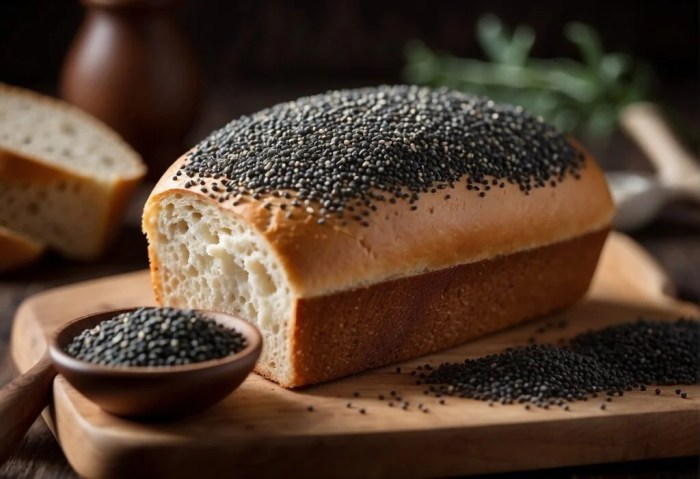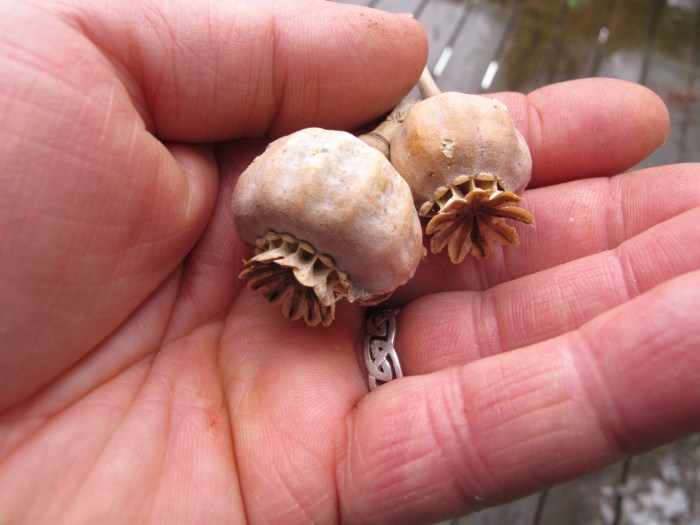Can You Plant Poppy Seeds for Cooking?
Growing Poppies for Culinary Use: A Comprehensive Guide

Source: thekitchencommunity.org
Can you plant poppy seeds for cooking – Poppy seeds, prized for their delicate nutty flavor and attractive appearance, add a unique touch to various culinary creations. However, cultivating poppy plants, even for culinary purposes, involves legal considerations that vary significantly across the globe. This guide explores the legal landscape, sourcing options, culinary applications, cultivation techniques (where legal), health aspects, and visual characteristics of different poppy seed varieties.
Poppy Cultivation Legality
The legality of growing poppies differs dramatically depending on the country and the specific poppy variety. Opium poppies (Papaver somniferum), known for their opium content, are strictly regulated or outright banned in most countries. Other poppy varieties, such as the breadseed poppy (Papaver somniferum), which produces seeds with negligible opium content, may have less stringent regulations, though cultivation may still be restricted in some regions.
Penalties for illegal cultivation range from hefty fines to imprisonment, depending on the quantity of plants, the type of poppy, and the specific laws of the jurisdiction. The legal framework is complex and varies significantly. It’s crucial to check the local regulations before attempting to cultivate any poppy plants.
| Country | Legal Status of Opium Poppy Cultivation | Legal Status of Other Poppy Varieties (e.g., Breadseed) | Penalties for Illegal Cultivation |
|---|---|---|---|
| United States | Illegal without a license | Generally permitted for seed production with proper licensing and registration | Fines, imprisonment |
| Canada | Illegal without a license | Generally permitted with licensing | Fines, imprisonment |
| United Kingdom | Illegal without a license | Requires a license for commercial cultivation; personal cultivation may be permitted under certain circumstances | Fines, imprisonment |
| Australia | Illegal without a license | Requires a license for commercial cultivation; personal cultivation may be restricted | Fines, imprisonment |
| Germany | Illegal without a license | Cultivation for seed production is generally permitted with licensing and registration | Fines, imprisonment |
Sourcing Culinary Poppy Seeds, Can you plant poppy seeds for cooking
Obtaining high-quality poppy seeds is crucial for achieving optimal flavor and texture in your dishes. Reliable suppliers are essential to ensure the seeds are free from contaminants and meet culinary standards. Look for seeds that are uniformly colored, dry, and free from debris. The seeds should have a smooth, slightly oily texture.
Flavor profiles can vary subtly depending on the variety and growing conditions. Some varieties might exhibit a slightly sweeter or more intensely nutty taste. Online retailers specializing in spices and baking ingredients, as well as local health food stores and specialty grocery stores, are excellent resources for purchasing culinary poppy seeds.
- Online retailers (e.g., Amazon, specialty spice websites)
- Health food stores
- Specialty grocery stores
- Local farmers’ markets (where available)
Culinary Applications of Poppy Seeds

Source: gardening-guy.com
Poppy seeds are versatile ingredients used in a wide range of cuisines. Their subtle nutty flavor and pleasing texture enhance both sweet and savory dishes. They are frequently incorporated into baked goods like muffins, breads, and cakes, adding both visual appeal and a slightly crunchy texture. They’re also commonly sprinkled on bagels, bread rolls, and other baked items.
In savory dishes, poppy seeds can add a touch of sophistication to salads, dressings, and even meat marinades. They are also used as a garnish for certain vegetable dishes.
| Nutrient | Poppy Seeds (per 100g) | Sunflower Seeds (per 100g) | Chia Seeds (per 100g) |
|---|---|---|---|
| Calories | 525 | 584 | 486 |
| Protein (g) | 19 | 16 | 16 |
| Fat (g) | 42 | 50 | 31 |
| Fiber (g) | 16 | 8 | 34 |
Growing Poppies for Personal Use (Legal Considerations Emphasized)
This section assumes that growing poppies for culinary use is legal in your area. Always verify local regulations before proceeding. Cultivating poppies for seed harvesting requires careful planning and attention to detail. Choose a variety specifically designated for culinary use, such as the breadseed poppy. Select a sunny location with well-drained soil. Regular watering is crucial, especially during dry spells. Prevent pests and diseases by monitoring the plants regularly and taking appropriate measures if necessary.
Harvest the seed pods when they are dry and brown, then carefully extract the seeds and allow them to dry thoroughly before storage.
Potential Health Concerns and Considerations
While poppy seeds offer several nutritional benefits, including fiber, protein, and various minerals, it’s important to be aware of potential health concerns. Although the opium content in culinary poppy seeds is minimal, some individuals may experience mild side effects such as drowsiness or digestive upset, particularly after consuming large quantities. There is also a potential for interaction with certain medications.
Always consult with a healthcare professional if you have any concerns.
While you can indeed plant poppy seeds for cooking, ensuring they’re a culinary variety is crucial. The timing differs from planting ornamentals like hollyhocks; for instance, you’ll find information on the best time to sow hollyhock seeds, such as whether spring is suitable, by checking this resource: can you plant hollyhock seeds in the spring. Returning to poppy seeds, remember to harvest them carefully once mature to avoid the potent effects of the unripe seed pods.
- Consume poppy seeds in moderation.
- Monitor for any adverse reactions.
- Consult a doctor if you are taking medications or have underlying health conditions.
- Ensure seeds are sourced from reputable suppliers.
Visual Guide to Poppy Seed Varieties (Text-Based)
While many poppy varieties exist, several are commonly used for culinary purposes. Breadseed poppies typically produce small, kidney-shaped seeds, ranging in color from dark gray to blue-black. These seeds often have a slightly rough texture. Other varieties may produce slightly larger or rounder seeds with varying color shades.
Poppy plants themselves undergo a dramatic transformation throughout their life cycle. Seedlings emerge as small, delicate plants with lobed leaves. As they mature, they develop sturdy stems and characteristically large, showy flowers. After flowering, the plants form seed pods, which gradually dry and turn brown as the seeds inside mature. The pods eventually burst open, releasing the seeds.
FAQ Resource: Can You Plant Poppy Seeds For Cooking
Are all poppy seeds the same?
No, different poppy varieties exist, each with unique flavor profiles and appearances. Some are larger, some smaller; colors can vary.
How long do poppy seeds last?
Properly stored in an airtight container in a cool, dark place, poppy seeds can retain their quality for up to a year.
Can poppy seeds cause allergic reactions?
Yes, some individuals may experience allergic reactions to poppy seeds, though it’s less common than other seed allergies. Symptoms can range from mild to severe.
What are the best ways to store poppy seeds?
Store poppy seeds in an airtight container in a cool, dark, and dry place to maintain freshness and prevent rancidity.





















